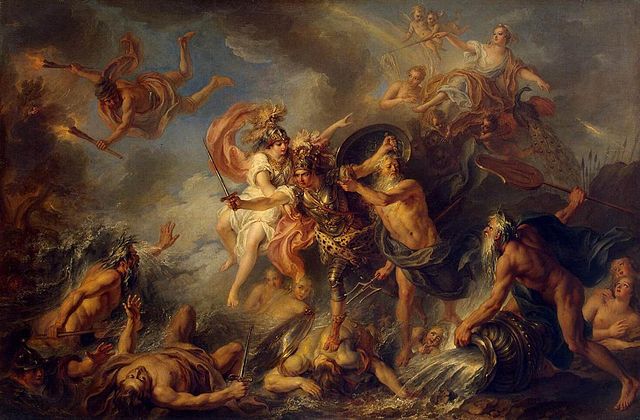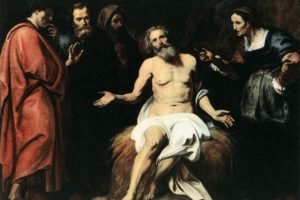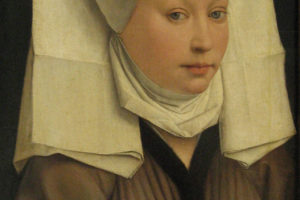There are so many weddings in June. The arrival of the long-expected day and the celebration of unity contains, in part, a kind of poetic enchantment that lingers like the small flames of tea lights on the banquet tables. I taste, if just for an evening, a sip of greater beauty. Then I drive home, change laundry, and decide to wait on the dishes sitting in the sink shabbily dressed with the grotesque remains of dried food until tomorrow. Our days are more frequently mundane than magical.
And I am not alone. In Christina Rossetti’s poem, “The Lowest Room,” she expresses a grief and dissatisfaction with her life. She longs for a poetic and grand purpose; she desires an ancient greatness as depicted in Homer’s Iliad. To her, these former days were days in which men’s strength was stronger, courage fiercer, and glory brighter. Instead of living in “golden days,” Rossetti describes these days as “days of dross.” While I think many of us wade through boredom or seasons of monotony in our lives, Rossetti’s experience does not seem to be of that kind. She does not simply want a bit of excitement; Rossetti desires a saturated poetic climate. But can this be a Christian reality? In what way? Is Christ’s call poetical?
Earlier this week I reread Lewis’ essay, “Is Theology Poetry?” Poetry is vaguely and humbly defined by Lewis as, “writing which arouses and in part satisfies the imagination.” The poetical is an aesthetic that entices and delights the imagination with the “harmonious, symmetrical, and self-explanatory” or the “inextricable.” Myths are poetical, and perhaps, as Lewis suggests, they owe a portion of their poetic appeal to the fact that we don’t believe them. He writes, “we spoil a mythology for imaginative purposes (in a certain sense) by believing in it.” To be clear, belief does not entirely rob the myth of its imaginative experience, rather, it “feels” different. Lewis acknowledges that the Christian myth, though it is believed to be true, still possesses poetical quality, but it is different than those of other myths.
Lewis continues to consider the differences between the Christian myth and the pagan myths to point out that the Christian myth is intrinsically different from others– regardless of whether it is believed to be true or not. Unlike any other myth, Christianity enters history. The Greek myths are, in a sense, outside of time, whereas the Christian myth transitions from the the vast, vague, and legendary (but altogether true) world of Genesis to history. Lewis compares this movement to an object gradually coming into focus until it is so clearly before us we can touch it with our hands and see it with our eyes. This transition is consummated when God of ‘heaven’ came to ‘earth.’ The myth of Christianity became incarnate, that is: God became Man; Myth became Fact. Lewis concludes:
The essential meaning of all things came down from the ‘heaven’ of myth to the ‘earth’ of history. In so doing, it partly emptied itself of its glory as Christ emptied Himself of His glory to be man… That is the humiliation of myth into fact, of God into Man; what is everywhere and always, imageless and ineffable, only to be glimpsed in dream and symbol and acted poetry of ritual becomes small, solid– no bigger than a man who can lie asleep in a rowing boat on the Lake of Galilee. You may say that this, after all, is still a deeper poetry. I will not contradict you. The humiliation leads to a greater glory.
Myth became man-sized… but the man was also God. And I think Rossetti comes to find this– the glory emptied into a manger or the hand of God at work with carpenter’s tools– a deeper poetry. As Christ humbled himself and took up the small and simple with joy, we too are called to take of the small, daily, and sometimes mundane tasks of faithfulness with joy. By doing so, we take our place in a deeper poetry which when unveiled “leads to greater glory.”
“Who hath despised the day of small things?”
by Christina Rossetti
As violets so be recluse and sweet,
Cheerful as daisies unaccounted rare,
Still sunward-gazing from a lowly seat,
Still sweetening wintry air.
While half-awakened Spring lags incomplete,
While lofty forest trees tower bleak and bare,
Daises and violets own remotest heat
And bloom and make them fair.
Lewis, C. S. “Is Theology Poetry?” In The Weight of Glory and Other Addresses. San Francisco: HarperOne, 2001.
Rossetti, Christina, and R. W. Crump. Selected Poems. Edited by Dinah Roe. London: Penguin Books, 2008.





Leave a Reply
Your email is safe with us.